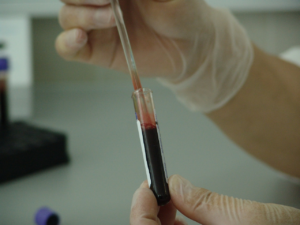If you’re a nursing student in the Philippines, there’s no doubt that the nursing board exam is on your mind. It’s the final hurdle before you can officially become a registered nurse and start your career in healthcare.
The 2015 nursing board exams were particularly significant, as they marked the transition to a new exam format that included more clinical simulations. In this article, we’ll take a look back at the pass rates for the June and December 2015 exams, as well as explore what those rates mean for the nursing profession in the Philippines.
As a nursing student, you may be wondering what the pass rates were for the 2015 nursing board exams and how they compare to previous years. You may also be curious about what factors contribute to passing or failing the exam. Additionally, you may be looking for tips on how to prepare for the exam and increase your chances of passing.
In this article, we’ll provide you with all of that information and more. So, read on to learn about the pass rates for the 2015 nursing board exams and what they mean for your future as a nurse in the Philippines.
Key Takeaways
- Pass rates for June 2015 exam: 42.66%, 4,145 out of 9,707 candidates passing.
- Pass rates for December 2015 exam: 49.29%, 9,114 out of 18,500 examinees passing.
- Factors affecting pass rates include difficulty level of the exam, number of examinees, and quality of education and training of nursing schools.
- Top-performing schools for June 2015 exam: University of Santo Tomas, Cebu Normal University, and West Visayas State University-La Paz.
Overview of the Nursing Board Exam in the Philippines
You’re about to dive into the world of the Nursing Board Exam in the Philippines, where you’ll be transported to a bustling exam room filled with determined and nervous nursing students.
The Nursing Board Exam is the final hurdle that nursing students in the Philippines must overcome before they can practice as licensed nurses. This exam is a culmination of their nursing education and serves as a gateway to many career opportunities.
Nursing education in the Philippines is rigorous and demanding, with a heavy emphasis on theory and practical application. Nursing students undergo extensive training in various areas such as medical-surgical nursing, maternal and child health, community health, and psychiatric nursing.
The Nursing Board Exam tests their knowledge and skills in these areas, as well as their ability to provide safe and competent nursing care. Passing the exam is crucial for nursing graduates as it opens doors to a wide range of career opportunities, both locally and internationally.
Pass Rates for the June 2015 Exam
Let’s take a moment to examine how well the aspiring nurses of June 2015 did on their licensing test. The nursing board exam Philippines is known for its difficulty, and the June 2015 pass rates were no exception.
Here are some key statistics to give you an idea of how the exam takers fared:
- A total of 9,707 candidates took the exam.
- Only 4,145 of those candidates passed, resulting in a pass rate of 42.66%.
- The top-performing schools were: University of Santo Tomas, Cebu Normal University, and West Visayas State University-La Paz.
Despite the relatively low pass rate, the June 2015 nursing board exam in the Philippines produced thousands of new licensed nurses who are now ready to start their careers in the healthcare industry. Those who did not pass have the opportunity to retake the exam and continue pursuing their dream of becoming a registered nurse.
It’s important to note that passing the nursing board exam is just the first step in a long and rewarding journey as a healthcare professional.
Pass Rates for the December 2015 Exam
If you’re considering taking the December 2015 nursing licensing test, be aware that the pass rates were significantly lower than the previous year. The nursing board results showed that only 9,114 out of 18,500 examinees passed the exam, resulting in a 49.29% passing rate. This is a sharp decline from the June 2015 exam where 9,707 out of 17,891 examinees passed, resulting in a 54.26% passing rate.
The Professional Regulation Commission (PRC) attributed the lower passing rate to the increased difficulty of the exam, particularly in the areas of Medical-Surgical Nursing, Maternal and Child Nursing, and Community Health Nursing. Despite the low pass rates, the PRC assured the public that they have thoroughly reviewed and validated the results to ensure the fairness and accuracy of the exam.
Comparison of Pass Rates Between the June and December Exams
It’s interesting to see how the pass rates in June and December compare, with a significant difference of 4.97% between the two exams. The June exam had a higher pass rate of 74.76% compared to the December exam’s 69.79%. This means that out of the 31,275 examinees who took the December nursing board exam, only 21,814 passed, while out of the 29,711 examinees who took the June exam, 22,271 passed.
Factors affecting pass rates include the difficulty level of the exam, the number of examinees, and the quality of education and training of nursing schools. While the Professional Regulation Commission (PRC) ensures that the exam is of the same level of difficulty for both exams, there may be variations in the number of examinees and the quality of education and training provided by nursing schools. It’s important for aspiring nurses to choose a reputable nursing school and to prepare well for the exam to increase their chances of passing.
Implications for the Nursing Profession in the Philippines
The nursing profession in the Philippines can benefit greatly from analyzing the factors behind the discrepancies in pass rates between the June and December exams. By doing so, the profession can identify areas for improvement and work towards enhancing the quality of nursing education in the country.
Additionally, this can provide insights on how to better prepare nursing students for the licensure exam and increase their chances of passing.
To improve the nursing profession in the Philippines, the government must provide more support to nursing schools and educators. This includes increasing funding for nursing programs, improving the curriculum and resources available to nursing students, and providing more opportunities for continuing education and professional development.
By investing in the nursing profession, the government can ensure that the country has a strong and competent nursing workforce that can provide quality healthcare services to the Filipino people.
Tips for Nursing Students Taking the Board Exam
You can increase your chances of success on the licensure exam by following these tips and preparing yourself both mentally and physically. First, it is important to develop effective study techniques. This may include creating a study schedule, reviewing material regularly, and practicing with sample questions. It is also helpful to join study groups or seek the guidance of a mentor who can provide additional support and insight.
Second, test taking strategies can greatly impact your performance on the exam. It is important to read and understand all instructions before beginning the test, manage your time effectively, and answer all questions to the best of your ability. Additionally, staying calm and focused during the exam can help you think more clearly and make better decisions. By implementing these tips, you can increase your chances of passing the nursing board exam and successfully beginning your career as a registered nurse.
| Study Techniques | Test Taking Strategies | |
|---|---|---|
| Create a study schedule | Read and understand all instructions | |
| Review material regularly | Manage your time effectively | |
| Practice with sample questions | Answer all questions to the best of your ability | |
| Join study groups or seek mentorship | Stay calm and focused | |
| Seek additional support and guidance | Think clearly and make informed decisions | …during the exam. |
Frequently Asked Questions
What is the passing score for the Nursing Board Exam in the Philippines?
To pass the nursing board exam in the Philippines, you need to achieve a passing score of 75%. This means that you need to be well-prepared and knowledgeable about the topics covered in the exam.
To increase your chances of passing, it’s recommended that you study early and consistently, attend review classes, and practice answering sample questions. It’s also important to take care of your physical and mental health during the preparation process to ensure that you’re in the best condition to take the exam.
With the right mindset and preparation, you can ace the nursing board exam and start your journey as a licensed nurse.
How many times can a nursing student take the Board Exam if they fail?
If you fail the nursing board exam in the Philippines, you can retake it for a limited number of times. The retaking limit varies depending on the regulations of the Professional Regulation Commission (PRC) and the Board of Nursing (BON).
However, it’s important to note that failing the exam repeatedly can delay your career and cause financial strain. To avoid this, you can employ strategies for passing the nursing board exam such as enrolling in review classes, taking mock exams, and seeking guidance from mentors.
It’s also important to properly prepare physically and mentally for the exam. By taking care of yourself and diligently studying, you can increase your chances of passing the nursing board exam and starting your career as a registered nurse.
Are there any changes in the exam format for the upcoming Nursing Board Exam?
If you’re preparing for the upcoming nursing board exam, you may be wondering if there are any changes in the exam format.
While there may not be any major changes, it’s important to stay up-to-date on any updates from the board.
To ensure you’re fully prepared, it’s crucial to focus on exam preparation and utilize high-quality study materials. This includes attending review classes, making use of practice exams, and studying from reputable textbooks and online resources.
By putting in the time and effort to prepare, you’ll increase your chances of passing the nursing board exam and achieving your career goals.
What is the average age of the nursing students who took the Board Exam in 2015?
You’re curious about the average age and demographics of nursing students who took the board exam in 2015. The average age of these students was not readily available, but the Professional Regulation Commission (PRC) did release some demographic information.
Of the 31,275 examinees, 30,007 were first-time takers and 1,268 were repeaters. The majority of the examinees were female, with 27,748 women and 3,527 men taking the exam.
The PRC also reported that the top-performing schools were predominantly located in the National Capital Region and that the passing rate for first-time takers was 74.32%. Overall, the demographic information provided by the PRC gives insight into the makeup of the nursing board exam takers in 2015.
How long does it take for the Nursing Board Exam results to be released?
When it comes to the nursing board exam results release timeline, there are several factors that can affect the release date. Typically, it can take anywhere from 2 to 3 months for the results to be released after the exam date.
However, unforeseen circumstances such as technical difficulties or natural disasters can delay the release date. Additionally, the number of examinees can also impact the timeline, with larger batches of test-takers taking longer to process.
It’s important to keep in mind that the release date is ultimately determined by the Philippine Regulatory Commission (PRC), who are responsible for administering the exam and releasing the results.
Conclusion
Congratulations on making it to the end of this article about the Nursing Board Exam in the Philippines!
Now that you have a better understanding of the pass rates for both the June and December 2015 exams, as well as some tips for nursing students taking the exam, you’re better equipped to prepare for your own board exam.
Remember, the nursing profession in the Philippines is a vital part of the healthcare system, and passing the board exam is a crucial step towards becoming a registered nurse.
So, study hard, stay focused, and don’t forget to take care of yourself during this stressful time. Good luck on your journey towards becoming a registered nurse!





















































































































